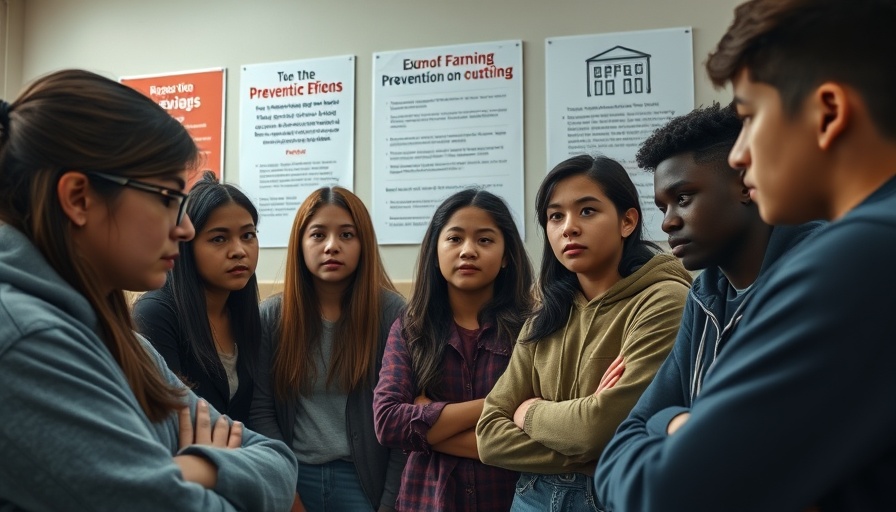
Connecting With Our Loved Ones in Tough Times
As parents, we often ask our children how their day is going—"How are you, friend?"—and it is more than a casual inquiry. This simple question fosters connection and opens the door to deeper discussions about emotional and mental well-being. It is particularly important in today’s climate, where issues surrounding substance abuse are on the rise among teenagers and young adults. Creating a safe space for dialogue can prevent feelings of isolation and encourage openness.
The Rise of Substance Abuse Among Youth
Research indicates that youth substance abuse is a growing concern, with escalating numbers of adolescents using drugs and alcohol. According to South African statistics, around 15% of adolescents have experimented with substances like alcohol, cannabis, and prescription drugs. This is alarming, and as parents, we need to be aware of the warning signs early on.
What Is Substance Abuse and How to Recognize It
Substance abuse encompasses a range of behaviors, including heavy drinking or using recreational drugs, leading to various detrimental effects in a young person's life. Parents must learn how to recognize these signs, including changes in behavior, declining grades, and sudden mood swings. Early intervention can be key to stopping the downward spiral of addiction.
Creating a Supportive Environment
Building a supportive environment includes maintaining open lines of communication wherein your children can discuss their feelings without fear of judgment or punishment. Simple yet effective strategies, such as family dinners, regular one-on-one chats, and engaging in recreational activities together can strengthen these connections.
Understanding Treatment Options
If a child is struggling with substance abuse, knowledge of various treatment options is crucial. In regions like Johannesburg and Cape Town, we're seeing a wide range of rehabilitation services such as inpatient rehab, outpatient rehab programs, and specialized interventions like dual diagnosis treatment for co-occurring mental health issues. Engaging with a professional can help you navigate these resources effectively.
Evidence-Based Therapies in Recovery
Modern recovery techniques have evolved significantly. Evidence-based treatments such as cognitive behavioral therapy, group therapy sessions, and motivational interviewing are more than effective—they’re essential. Programs that incorporate holistic rehab practices including mindfulness-based therapies, yoga, and art therapy in rehab settings are gaining traction as they cater to the whole person, not just their addiction.
The Importance of Aftercare Programs
Once rehabilitation is complete, the recovery journey continues with aftercare programs designed to support your loved ones as they transition back to daily life. These programs may include sober living homes, support groups, and family counseling. Engaging in these resources not only provides ongoing support but also reduces the risk of relapse.
Final Thoughts and Call to Action
Understanding substance abuse and its treatment options is a crucial step for every family. By fostering open communication, recognizing the signs early, and knowing your options, you empower your children to make healthier choices. Don’t wait for a crisis to seek help. Contact a local addiction counselor today to better understand how you can support your loved ones in their journey towards recovery.
 Add Row
Add Row  Add
Add 




Write A Comment